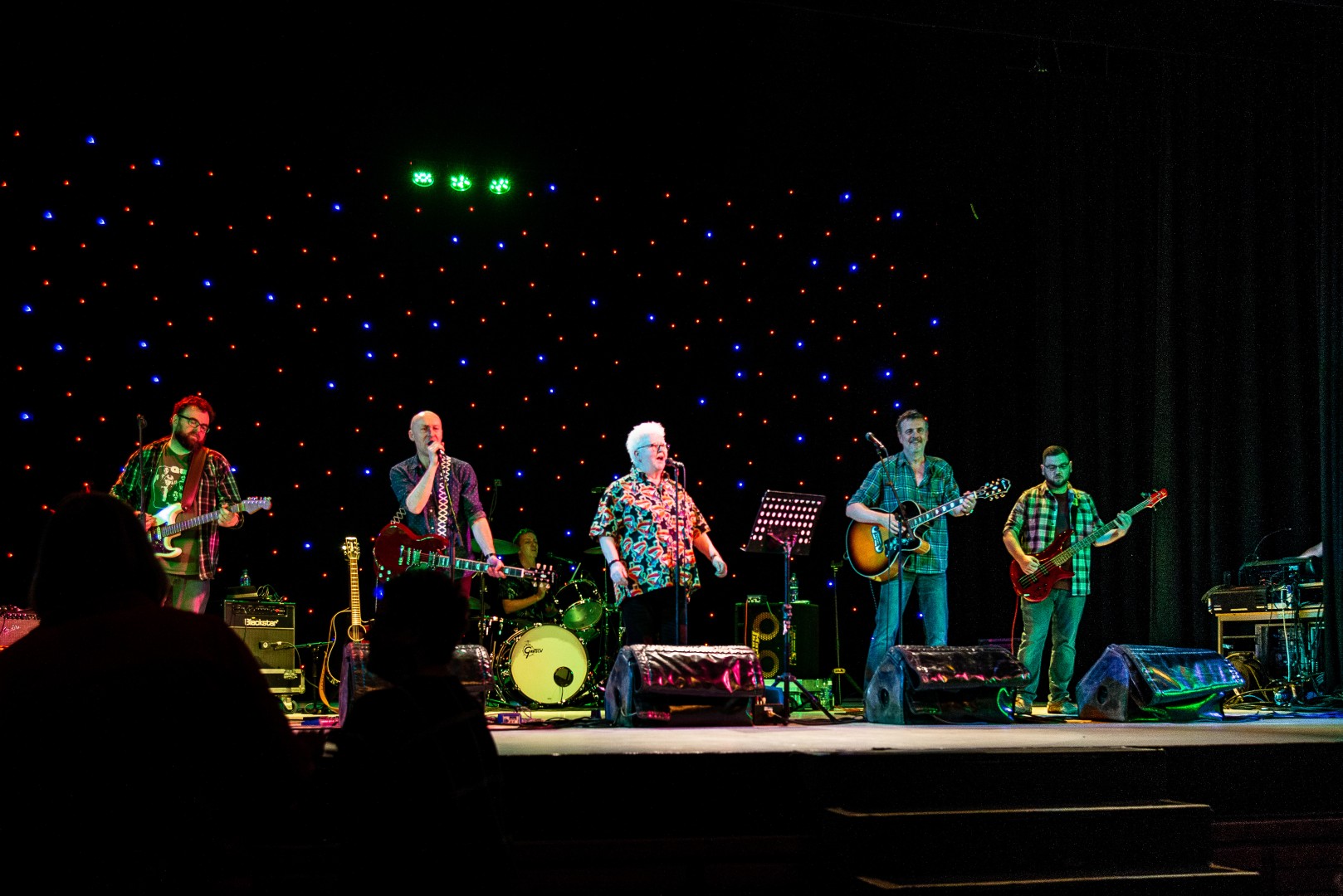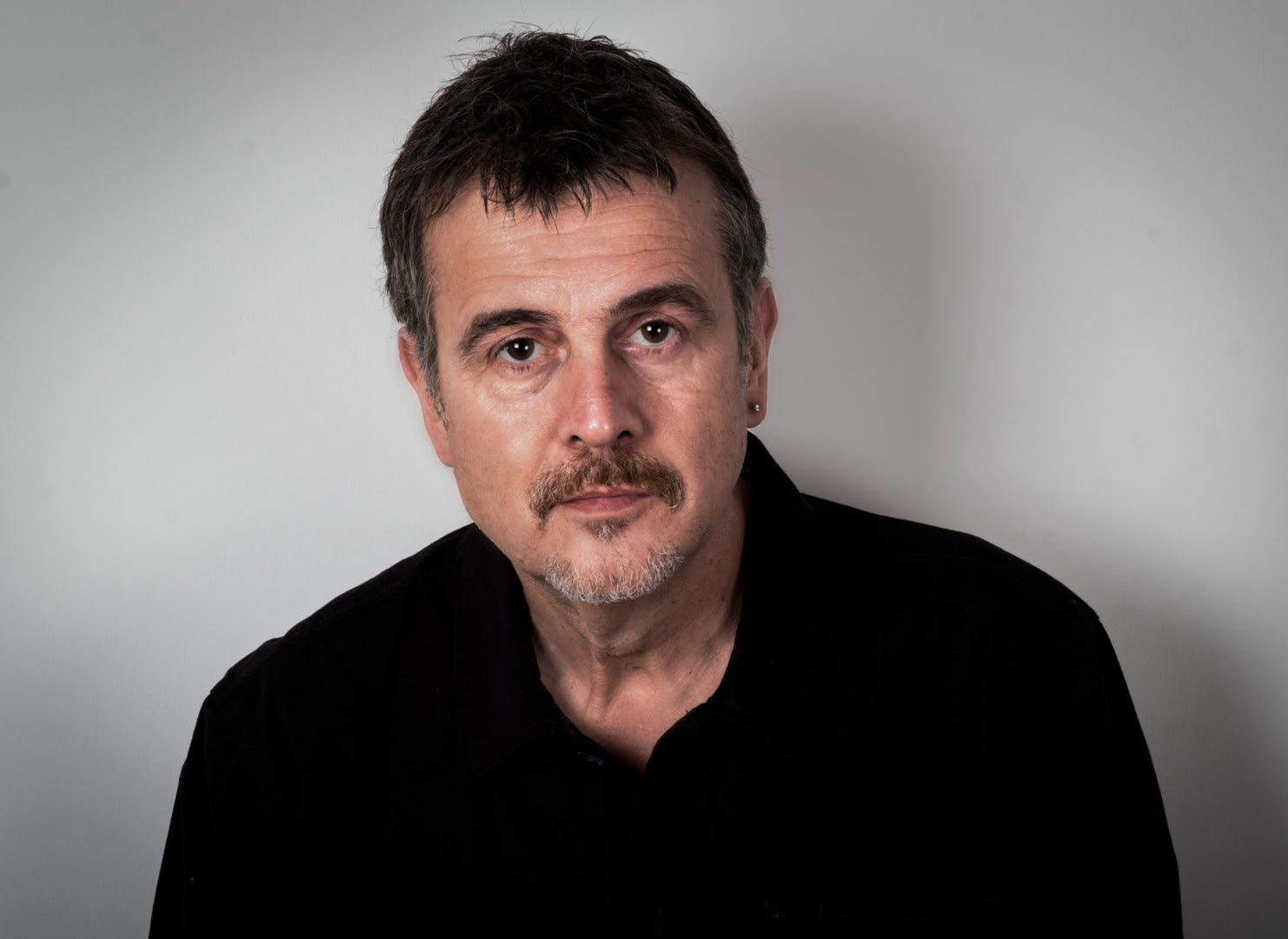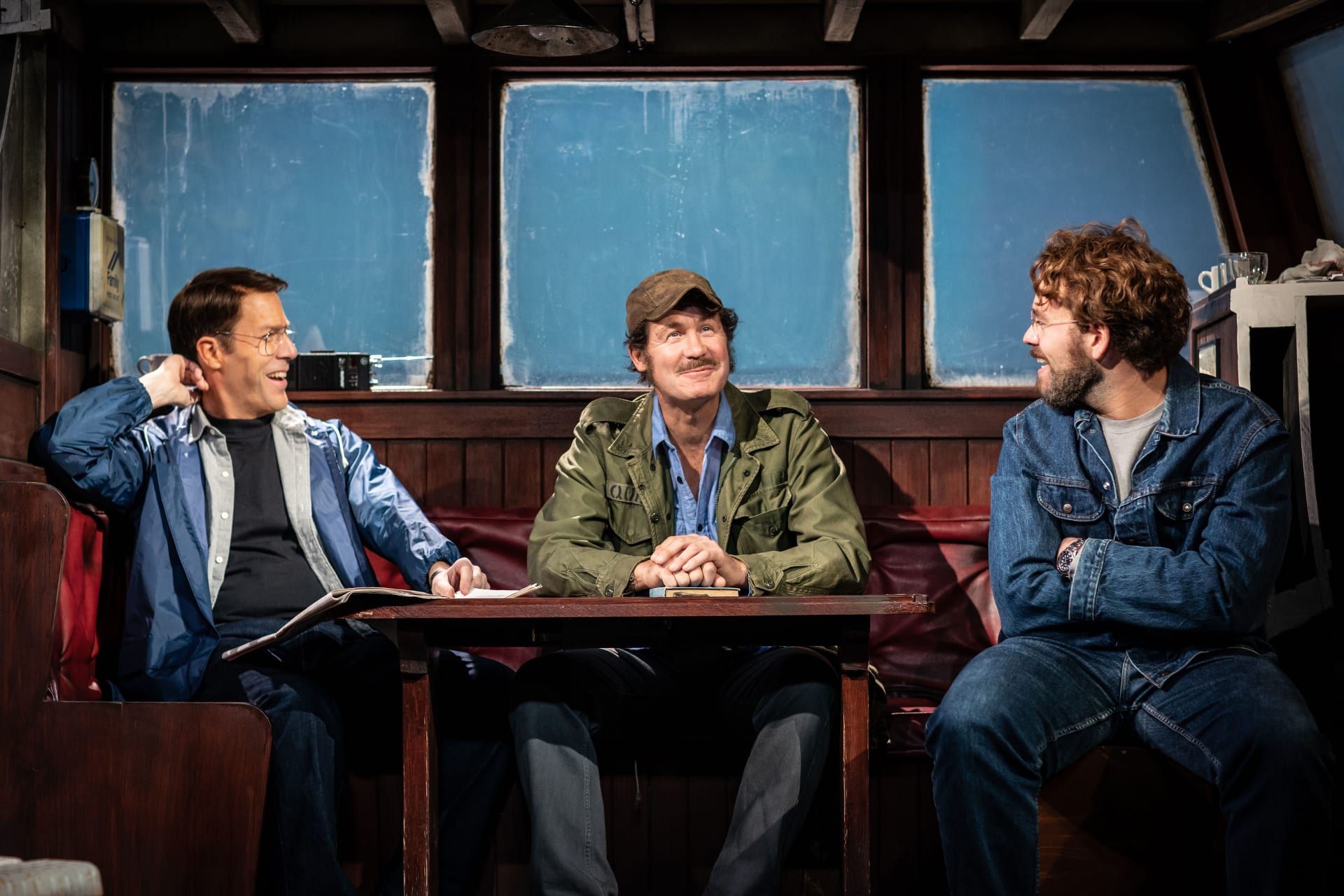Birmingham-born Mark Billingham had already worked as an actor, stand-up comic and television writer before penning the first Tom Thorne book, Sleepyhead. Published almost 20 years ago, the crime novel became an instant bestseller in the UK, marking the beginning of a two-decade long series of Thorne titles, the latest of which comes out this month. On top of his writing, Billingham performs alongside other giants of the crime fiction genre as part of the covers band Fun Lovin’ Crime Writers, who play Sunday at Cornbury Music Festival this year. Here the former star of Maid Marian and Her Merry Men talks cursing, criminals and cheese-connected killings.
Thanks for taking the time to talk to us, and early in the morning too – do you have strict 9-5 hours?
If there’s one thing writing isn’t, it’s 9-5; you write when you’ve got something to write. That’s not to say it’s not very disciplined in all the ways that count – meeting deadlines, delivering a book every year. The other thing to say is that you’re writing the book all the time because it’s in your head all the time. You’re trying to work things out, solve problems, sort out where the plot’s going. But there’s no point sitting in front of a computer screen until you’ve done that. For me, most often the best work is done late at night when the house is quiet; it’s dark outside, I’m not getting emails every five minutes, not tempted to go on Twitter – I can do a full day’s work in a couple of hours.
On your website there’s an example of a missive of complaint from a reader, regarding the bad language in one of your novels.
Every book or two, I get an angry email about it, as do most crime writers I know. It’s a strange thing; people will happily buy into the idea of brutal murder, albeit fictitious, but then complain when one of the people involved in these brutal murders swears or – heaven forbid – blasphemes. Like you stumble across the body of your husband or wife, and you’re supposed to say, ‘Oh jeepers! Oh gosh!’ Chris Brookmyre and I do a show dedicated to emails of complaint, and a lot of them are about bad language. It is very silly that people get upset by it in a crime novel, but people get upset about all sorts of things.
What other messages do you get?
There are people who like to point out where you’ve made factual errors in a work of fiction, that there isn’t a branch of Starbucks where you’ve put one. Again, this series of serial killings is completely acceptable to you, but one erroneous coffee shop isn’t. But it’s a double-edged sword. People like the character of Tom Thorne and might have been reading about him for the best part of 20 years, so some will say, ‘I don’t think he should be in a relationship with that person.’ That’s not going to change the way I’m planning Thorne’s future or what he does in the book I’m writing, but it’s nice to think people have got that involved with him. I still quite regularly receive CDs of music people think he would like; a free CD’s a free CD, and people have gone to the trouble of thinking, ‘Yeah, Thorne needs to start listening to this album.’ Of course people can take ownership of your characters to a degree which is sort of disturbing. One of the best examples of this is when Lee Child’s Jack Reacher books were made into films with Tom Cruise. I’ve been sitting with Lee at events when people have shouted in his face, ‘How could you?’ You get that most when your character is played on TV. David Morrissey played Thorne on television, and we showed a little trailer of the series to an audience. When the lights went up I sat there and said, ‘What do you think?’ A woman on the front row immediately shook her head and went, ‘He's too tall.’ That’s absolutely not the Thorne she had in her head, but the point is it’s never going to be the Thorne a reader has in their head; that’s the beauty of reading: everybody has their own idea of who the character is. I’ve never really described the character in any great detail, so it’s up to the reader to put flesh on those bones.
That leads us on to the world of acting, which you have been a part of, how far removed is that profession from that of writing novels?
I’m convinced that writing a novel is giving a performance. It’s a very different kind from jumping about onstage in one guise or another, but it is a performance – you’re trying to entertain an audience. When you’re creating different characters, each one of them is an acting exercise in its own right. You’ve got to make every character as three-dimensional, engaging and convincing as you can, and actually put something of yourself in them. People always say, ‘Has Tom Thorne got bits of you in him?' Of course he has. But so has the killer.
Is it at all hard to admit that you are in your criminals, and when you’ve spoken to other crime writers, have they said the same thing?
Of course, and actually, in a lot of ways, criminals are more fun to write. The devil has all the best tunes. It can be a little bit disturbing because in order to make your villains convincing, they can’t just be cartoonish, there has to be some real emotional investment in them – if you’re trying to explain why they are the way they are. You have to get inside the heads of those characters and that can be a little bit weird if they’re particularly disturbed.
The flaws in a crime novel’s detective are crucial, aren’t they?
It’s an archetype with a long history. If I was to describe to you a detective who is socially completely dysfunctional, has problems with drink or drugs, is haunted by past cases, yes I could be talking about Harry Bosch, John Rebus or Tom Thorne, but actually I’m describing Sherlock Holmes. I’ve met a lot of detectives in the course of researching the books, and they’re very well dressed, very well balanced, they go home to happy families and they’re not tortured. But I don’t think readers want to read about those characters – and I don’t want to write about them.
Tom Barnaby in Midsomer Murders is an exception – he’s not flawed.
But you’re very much in the cosy genre with Midsomer Murders, when you’ve got characters being killed by falling lumps of cheese. You can hardly have DCI Barnaby go home at the end of the day, stick some heavy metal on and shoot up heroin. That really wouldn’t go with that particular sub-genre – I’d like to see that though.
How did Fun Lovin’ Crime Writers come about?
It started a couple of years ago at the World Mystery Convention, which happens in a different city in America every year. It was in New Orleans and on the last night there was an event at House of Blues. There was a band fronted by an American writer and anybody who wanted to could get up and do some stuff. Doug Johnstone, Stuart Neville and I had thought we would maybe do something, then forgot about it, had one drink too many, and were sitting at the bar. At the end of the evening this writer went, ‘There's some Brits in the room, come on.’ We shambled up onstage having given up on the idea and just busked our way through three songs – Johnny Cash, a Warren Zevon song, and oddly ‘500 Miles’ by The Proclaimers. We just played whatever we knew, with bits of paper with scribbled lyrics on. In the way of these things it wound up somewhere on YouTube and the person who programmes Edinburgh International Book Festival got in touch. ‘Right, I want to book you guys to do an hour and a half.’ We went, ‘Huh?’ There were only three of us at that point, and we only played three songs. So we very quickly put a band together, rounded up anybody else we knew who could play or sing, people we’d done stuff with before, and started rehearsing. The minute we started we knew it was going to work. We did our show in Edinburgh and we’ll be back there in August doing the third year on the trot. We’ve been incredibly busy, and we love every minute of it.

It makes sense for you, another thing that’s just sort of happened – you’ve had an organic career.
Well, an organic attempt to avoid a proper job. Writing is an incredibly solitary business, so when you can do something that involves collaborating with friends and colleagues, it’s great fun. It’s the best midlife crisis in crime writing/musical history. At the heart of the band are three fabulous musicians; I’m not counting myself at all, but Stuart Neville, Doug Johnstone and Luca Veste – the musical heart of the band – are absolutely fantastic. Upfront you’ve got me, Val McDermid and Chris Brookmyre clinging onto their coat tails, singing, playing a bit and doing our best. We took the decision early on that we’re a covers band, a party band. Nobody’s going to turn up going, ‘Hey everybody, I’ve written a song.’ That’s how we’re going to fall out really quickly. Not that we don’t still have disagreements about what songs we should cover because within six people you’ve got a tremendous variety of musical tastes (chances are if it’s a song with three chords, that’s my idea, largely because I can only play three chords). But we’ve never really had a cross word. That’s a mark of how crime writers do tend to get on with each other – we’ve just taken that to the extreme.
The Tom Thorne thriller, The Killing Habit is now available in paperback. The series’ next instalment, Their Little Secret is out 2 May. Fun Lovin’ Crime Writers play Cornbury Music Festival 7 July.










